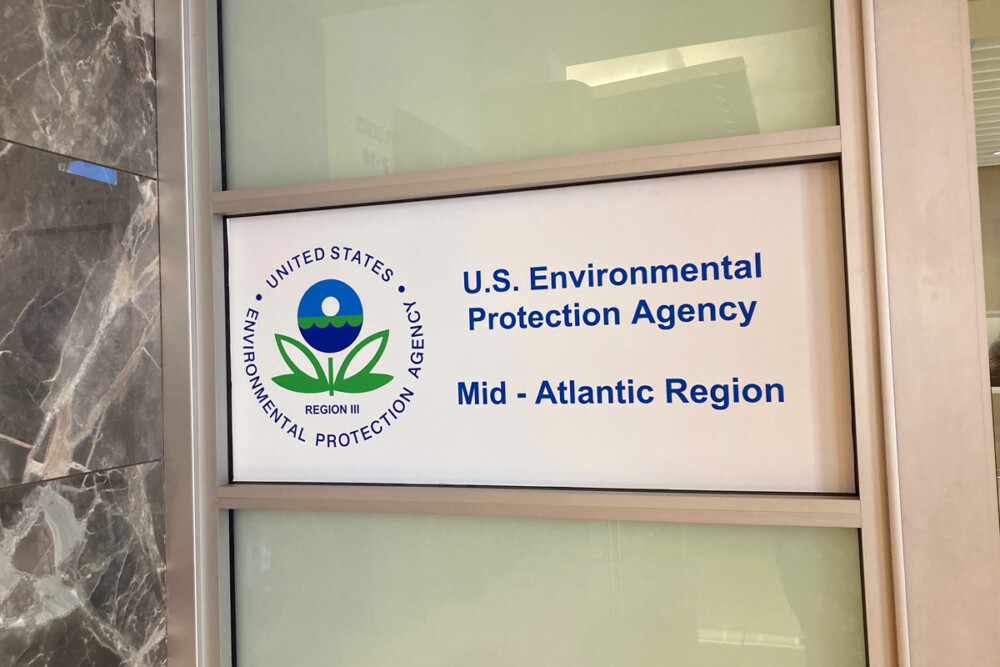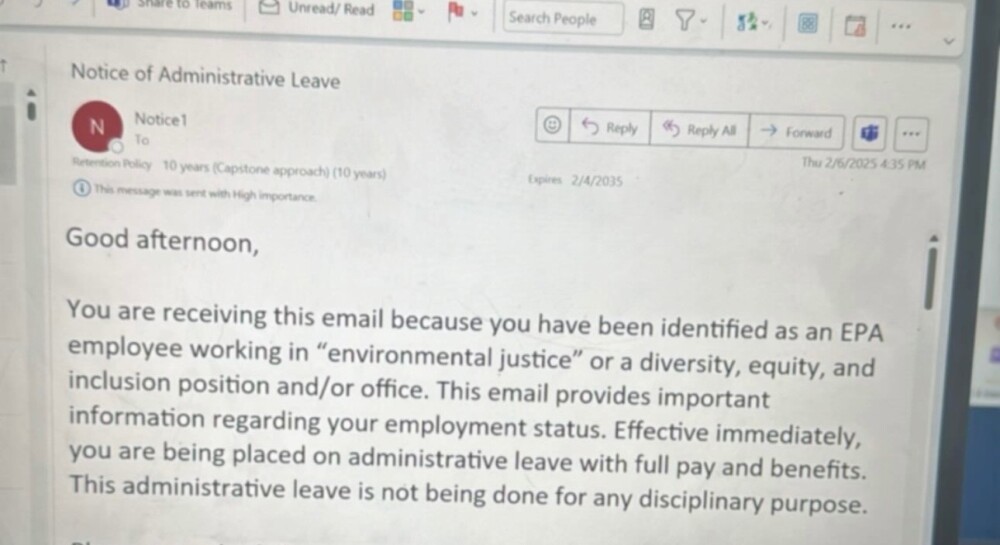
“The rug pulled out”: Inside the EPA firings in Philadelphia’s Region 3 headquarters
Employees fear the long-term impact of eliminating environmental justice programs.
Jada Ackley believed that her position as an EPA Environmental Protection Specialist was a solid career choice. “You are told that federal employment is typically pretty stable,” said Ackley.
Instead, terminations have been sudden, abrupt, and a complete disruption, especially for her now-ex-coworkers who relocated from out of state.
The timeline from email warning to official termination moved swiftly following an executive order from President Trump titled “Ending Radical and Wasteful Government DEI Programs and Preferencing.” In addition to ending all diversity, equity, and inclusion initiatives in the federal government, environmental justice work was targeted in the order. Within 28 days after Trump’s inauguration, Ackley and several colleagues were fired from Region 3. “Everyone just had the rug pulled out from under them,” said Ackley.
On January 21, one day after President Trump’s inauguration, a memorandum from the United States Office of Personnel Management instructed heads and acting heads of agencies to begin the process of closing all DEIA offices and corresponding work. The following day, EPA Region 3 employees received an email to report any suspected DEIA activity to one of two specific email lines.
By the end of that week, anyone whose title explicitly contained Diversity and Equity language was terminated. On January 27, employees received notice that the DEIA memo was reshaped to include Environmental Justice work.
Over the next few days, Ackley and colleagues received the “Fork in the Road” deferred resignation emails, which increasingly urged resignation and reminded employees that their employment was at will.
By February 6, Ackley and approximately 10 environmental justice colleagues were told in a meeting that they’d receive an email in 15 minutes saying that they were being placed on administrative leave effective that afternoon.

For twelve days, Ackley and her colleagues sat in limbo, waiting for communication from the agency. She heard nothing but radio silence. She was locked out of her government accounts.
The verdict finally came on February 18: Ackley’s position was removed. An email stated, “The Agency finds that you have failed to demonstrate fully your qualifications for continued employment.”
For Ackley, the process was “brutalizing.” She was on the last days of her honeymoon.
At the EPA, 388 probationary workers – workers who have less than one year of service and who have less protection from termination – were fired nationwide; 171 others were put on administrative leave. Philadelphia belongs to EPA Region 3, which covers Delaware, Maryland, Pennsylvania, Virginia, West Virginia, D.C., and seven federally recognized tribes. Affected workers at Region 3 mainly fall under the Environmental Justice, Community Health & Environmental Review Division in addition to any DEI-titled workers. Twelve Region 3 Environmental Justice division members were placed on administrative leave according to the agency’s labor union. Seventeen staffers on probation were fired on February 14th, with two staffers since reinstated.
The lasting impact of systemic discrimination
These actions come at a critical moment. Environmental justice work addresses the adverse health effects of living in areas with ongoing environmental harms like exposure to contamination due to systemic discrimination like redlining. These harmful policies have led to a distrust in government over time, explained Ackley. She fears this disruption to EJ work has caused setbacks in repairing those already tenuous relationships and believes that the terminations were calculated.
“I think [the Trump Administration] attacked EJ because they understand that what it ultimately means is to value people’s lives over industry. No matter how they try to spin it, that is very, very much the M.O. of this administration: to put profit over people’s lives.”
A February 11th EPA press release painted DEI and environmental justice (EJ) work as wasteful spending. However, in Philadelphia, the EPA’s environmental justice work has been instrumental in transforming low-income communities.
Region 3 staffers have raised concerns that the loss of EJ programs could have direct and lasting impacts on several neighborhoods and projects.
One staffer said that there are worries that “conversations were abruptly cut short” with communities and programs. The staffer, who remains anonymous due to uncertainty of job security, said that their region was involved in supporting community-led EJ initiatives all over the city, from Nicetown-Tioga’s tree planting and land care to Grays Ferry’s Community Resilience Hub, which funds Habitat for Humanity and the Energy Coordinating Agency of Philadelphia. The Gray Ferry’s project includes 189 home repairs to stabilize housing and lower energy costs for low-income residents.
Another project between the Office of Sustainability and the Health Department of Philadelphia is the Environmental Justice Government-to-Government Program, which the city was selected for in 2023 to align city sustainability programs with EJ frameworks.
For EPA employees, repealing this work has ethical implications. “When you subjugate a community to environmental pollution, knowingly, I consider that a form of violence,” said Ackley. “To know that the federal government is now withdrawing from any attempts to reduce that violence is very chilling.”
As workers reel from firings, holes in information, fear, and chaos ensue for the remaining EPA workforce.
Green Philly spoke with EPA employees to get an idea of what’s happening inside. All employee identities have been protected due to the ongoing uncertainty of the situation. Here are the overall takeaways.
A work environment with fear.
Since receiving threatening emails, work has been uncertain. The first week was very emotional. People “just disappeared.” “We pledge to work for the people, but we feel vilified and scapegoated,” said one staffer.
Pronouns are reportedly not allowed in email signatures anymore, and people are being told to choose their bathrooms wisely.
Unable to access information and behind on it
Access to federal profiles has been stripped for those on administrative leave. They cannot access information on grants for the community, nor do they have contact information. This has led to conversations cut short, which one staffer wanted to relay: “It’s not because we don’t care. We do care. It was not our intent to walk away.”
For anyone still employed, what information is available is already outdated by the time it reaches them.
Not normal
“The normal order of our work has been thrown into chaos. I repeatedly hear from people who have been here for decades that this is not a normal presidential transition,” said another Region 3 staffer. Most of the people being terminated are young and on a probationary period.
** Editorial note: Jada Ackley previously worked as an Intern and freelancer for Green Philly.
Cover photo: Angie Bacha






